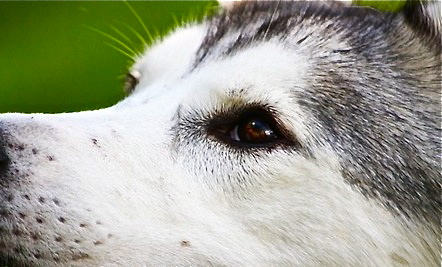Obesity is a huge problem in both our animal companions and humans.
Fur parents are actually creating nutritional imbalances in their animal companions by feeding excessive amounts of so called “nutritionally complete” and “balanced” foods and treats. Creating nutritionally complete and balanced foodstuff is virtually impossible and consumption of a calorie surplus ultimately creates an unhealthy state.
Let us delve further into the pet health problems to which being overweight or obese contributes.
Musculoskeletal System Abnormalities
Carrying extra weight stresses the musculoskeletal system (joints, ligaments, muscles tendons, etc.), which damages normal tissues and creates inflammation. Arthritis is joint inflammation which, when left unresolved, can lead to degenerative joint disease (DJD), permanent alterations in the cartilage surfaces.
Additionally, overweight companions are more prone to torn ligaments (including cranial cruciate ligament rupture) and intervertebral disc disease (IVDD), where the disks that cushion the backbone malfunction and can even pinch on the spine or nerves.
Endocrine Imbalance
The endocrine system is a complicated network of glands and hormones that regulate the body’s ability to manage normal functions (digestion, immune system response, metabolism, water balance, etc.). Two of the most common endocrine diseases diagnosed in companion animals that are associated with obesity are diabetes and hypothyroidism.
Diabetes occurs when the pancreas is unable to produce insulin or release it in sufficient quantities to appropriately regulate blood sugar. Hypothyroidism is an under functioning thyroid gland, which causes metabolism to slow down and leads to a variety of undesirable secondary conditions (weight gain, skin problems, high blood cholesterol, anemia, etc.).
With both diabetes in cats and hypothyroidism in dogs, obesity increases the likelihood that these conditions will occur.
Cardiovascular Disease
The cardiovascular system is comprised of the heart and blood vessels (arteries and veins). Having to supply and drain blood from tissue beyond what the body is structurally prepared for causes the cardiovascular system’s components to work harder at circulating oxygen, nutrients, and white blood cells, while also removing toxins.
Ultimately, high blood pressure, lack of circulation to body parts far away from the heart, and heart failure can result from of being overweight or obese.
Dermatologic Abnormalities
Excess flesh can create skin folds. Moisture accumulates between skin folds, which leads to inflammation (dermatitis) and fosters a climate appropriate for the growth of microorganisms (yeast, bacteria, etc.).
Additionally, overweight or obese companions face more of a challenge grooming themselves to maintain a cleaner state of their skin or coat than animals at healthy weight.
Cancer
Being overweight or obese has a well documented correlation with canine bladder and mammary cancer. The inflammation generated by carrying too much weight promotes an internal environment that is friendly to the development of cancer.
Additionally, diets rich in omega 6 fatty acids (such as animal-based fats) promote inflammation and have been linked to cancer cell growth.
The good news is that obesity is completely preventable. To start, fur parents should restrict the portions our canine and feline companions consume at each meal by 25-33 percent (one quarter to one third).
Additionally, we need to consider the inherent nutrient value in feeding our companions a whole-food based diet instead of commercially available processed diets.
Thirdly, we must shift our focus from giving food as a reward to instead providing praise, socialization, activity, and environmental enrichment.





